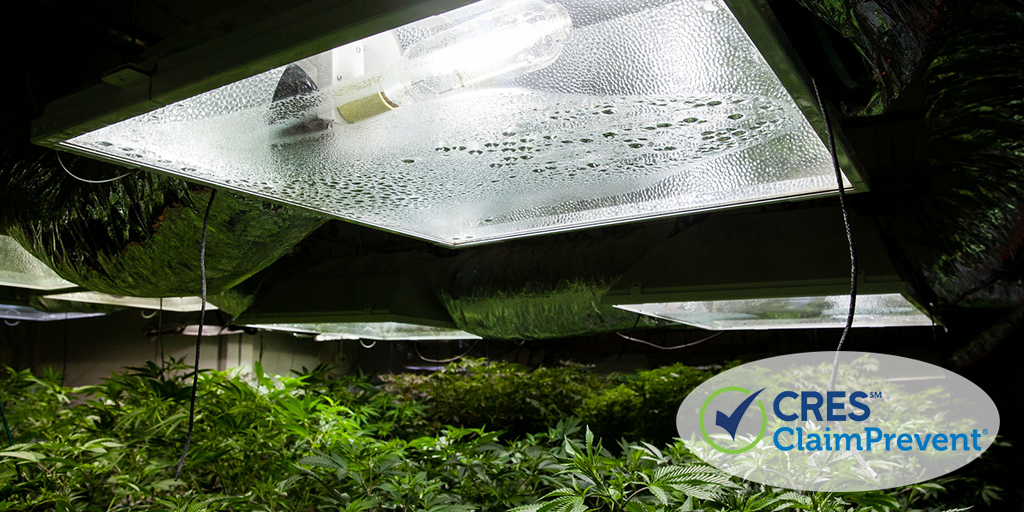Several states have enacted laws that make marijuana use and cultivation legal in their states, but federal law still prohibits the use and cultivation of marijuana for medical or recreational purposes. If you are in one of the states that has legalized, you’ll want to consider the risks to your real estate business.
Real Estate Risks Related to Marijuana Cultivation
Whether you manage or sell properties, marijuana cultivation on the property raises issues and risks. We’ll look at why a “legal” act could put you at risk, potential property damage or related costs, and what you can do to protect yourself from lawsuits.
Know the Law
As noted, federal law still prohibits the use and cultivation of marijuana. Although a growing number of states have medical and/or recreational use laws, federal law generally supersedes state law. This conflict with federal law creates risk of prosecution and could lead to fines, imprisonment, or loss of property. If you want to be removed from this risk, it’s wise to not sell, buy, or manage property where marijuana is grown or intended to be grown.
If you choose to ignore federal law in favor of state law, make sure you are aware that some counties or municipalities in states that allow marijuana cultivation may have their own regulations. Just as you need to know other regulations in areas where you represent property, it’s important to know what’s legal regarding growing in a particular location.
Know What Risks to Look For
In addition to the potential legal issues, marijuana cultivation can lead to visible and hidden damage of the property or other issues. Mold, caused by heavy water use, or chemical or other substance contamination could be an issue where marijuana is grown. Mold can lead to costly clean up, and the buyers may sue if they believe that mold (or marijuana being the possible cause of mold contamination) was not disclosed.
Other issues include the increased power usage (see “What Can Property Managers Do About Marijuana Cultivation”) or risk of fire in grower operations in rental properties.
Obviously these issues can affect the desirability of a property including its sales, resale or rental value.
Additionally, many E&O policies do not cover marijuana-related claims, so you need to review your coverage. You don’t want to be left personally responsible for financial loss if claims are filed by unhappy buyers, sellers, tenants or landlords of properties affected by marijuana cultivation problems.
Disclose and Document
So what can you do to protect yourself? Require both property management clients and tenants to sign a disclosure form for marijuana cultivation that notes the conflict between federal and state law, the related potential legal consequences, and the risk of contamination of the property with mold, chemicals or other substances, which can result from growing. In addition, landlords can include “no grow” or “no smoking” policies in leases. It is best to refer landlords and seller to seek legal guidance on including language in contracts around marijuana cultivation, past or potential.
If you are selling a property where marijuana was grown, you may need to disclose it or disclose that the house is at higher risk for mold. If you are dealing with a pot related issue, document communication with any related parties, including landlords, tenants, sellers or potential buyers.
The differences between state and federal law make issues related to growing marijuana on property you represent risky. Because many state laws are new, cases, even those that stay at the state level, are unclear. Bottom line, get legal advice before entering into real estate transactions that involve marijuana growing.
CRES Real Estate E&O + ClaimPrevent® clients can contact our real estate legal advice team if they have concerns about actual or potential marijuana cultivation on a property they represent. Providing legal advice is one of the ways CRES helps keep issues from becoming claims.
What concerns do you have about marijuana cultivation on property you represent?
